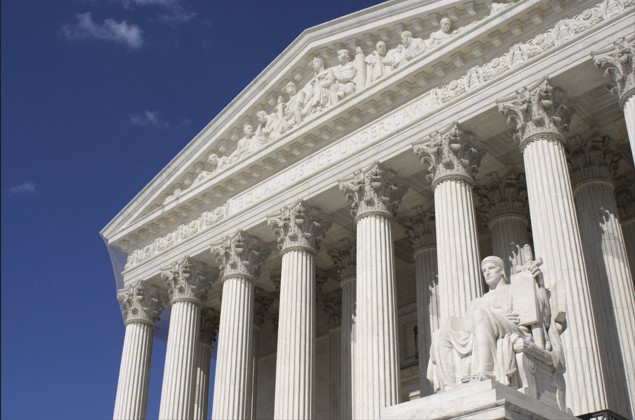Supreme Court Evaluates Trump Administration’s Controversial Immigration Order
on Mar 28, 2025
at 12:03 pm
Background of the Case
The Trump administration has made a significant legal move by petitioning the Supreme Court to allow enforcement of an executive order that mandates the immediate removal of noncitizens linked to the Venezuelan gang known as Tren de Aragua, without the benefit of a judicial hearing. This executive order invokes an 18th-century statute known as the Alien Enemies Act, traditionally utilized in wartime situations.
Legal Challenges and Lower Court Rulings
Recently, Chief U.S. District Judge James Boasberg issued a ruling that prevented the government from executing removals under the Alien Enemies Act, essentially granting temporary relief to the plaintiffs, five Venezuelan nationals facing deportation. In a 40-page brief, Acting Solicitor General Sarah Harris contested Boasberg’s decision, asserting that it undermines the executive branch’s authority over national security issues, emphasizing the President’s prerogative under Article II of the Constitution.
The Executive Order and its Implications
The executive order, announced on March 15, specifically targets Tren de Aragua, which has been implicated in activities including drug trafficking and human smuggling. The order classifies all Venezuelan nationals aged 14 and older, identified as members of the gang, as “Alien Enemies,” making them subject to immediate removal.
Recent Developments and Appeals Process
After Boasberg’s ruling, the U.S. Court of Appeals for the District of Columbia Circuit expedited the Trump administration’s appeal but upheld the lower court’s decision by a narrow margin of 2-1. Harris and the Trump administration have insisted that the judicial interventions pose a threat to critical national security operations and diplomatic negotiations surrounding the ongoing situation with Tren de Aragua.
The Supreme Court’s Next Steps
Chief Justice John Roberts has been assigned to manage the emergency application, demanding a response by April 1. The Supreme Court’s deliberation on the matter will ultimately influence not only the plaintiffs involved but also the broader implications of the executive branch’s immigration enforcement capabilities.
Concerns Over Separation of Powers
In her arguments, Harris highlighted a concerning trend of district courts’ temporary restraining orders which she believes disrupt the delicate balance between branches of government, cautioning that such actions might encourage a precedent of judicial oversight over executive actions in national security measures.

